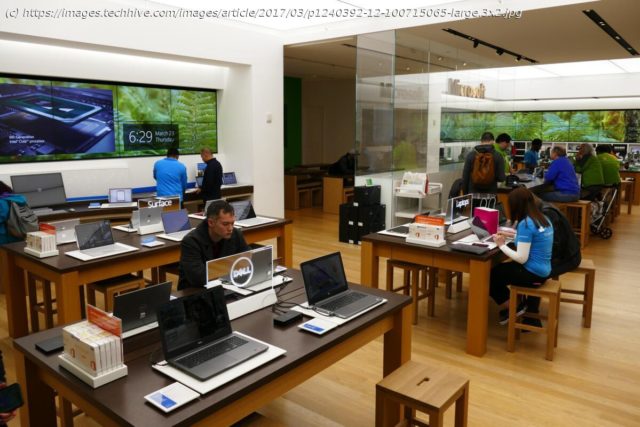Microsoft’s decision to close its retail Microsoft Stores puts more pressure on Microsoft to develop a superior online presence, while pushing more support responsibilities onto consumers.
Apple Macs “just work” (for now at least). PCs are hobbyist machines. Both are stereotypes, sure, but they might offer some explanation why Apple Stores are thriving and Microsoft just decided to close all of theirs.
Microsoft spun the closure into a “new approach to retail,” one that would be driven through its website and online sales channels, rather than through a network of physical stores. (Amazon must be chuckling at this.) But the writing was on the wall: in 2019, Microsoft shuttered virtually all of its retail kiosks at malls and other shopping centers, leaving the larger Microsoft Stores on uncertain ground.
If you walked into a mall the last few years, the evidence was there in front of you: shoppers visited Apple Stores, and generally ignored Microsoft Stores. That’s a little odd, when you think about it. A 2018 analysis by Thinknum shows that Microsoft Stores tended to open in the shadow of Apple Stores, so that technology buyers would have options from which to choose. So why did Microsoft Stores fail?
Part of it might have just been their respective approaches to retail. Microsoft Stores always felt a bit like a coffee shop: a place to hang out and talk technology in general. Apple Stores always felt more like an exclusive restaurant: if you’re not here to buy something, get out. You browsed at Microsoft Stores. You visited Apple Stores. The pandemic, of course, had its own, profound effects on both.
Home
United States
USA — software Closing Microsoft Stores means more support and buying headaches for Windows users






